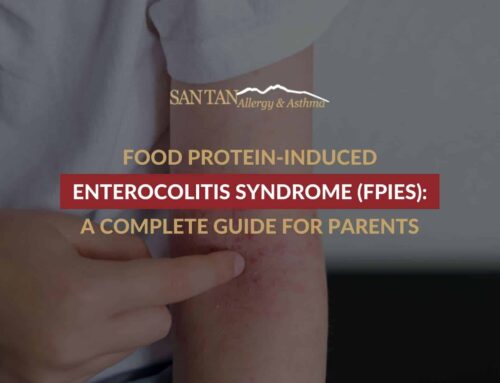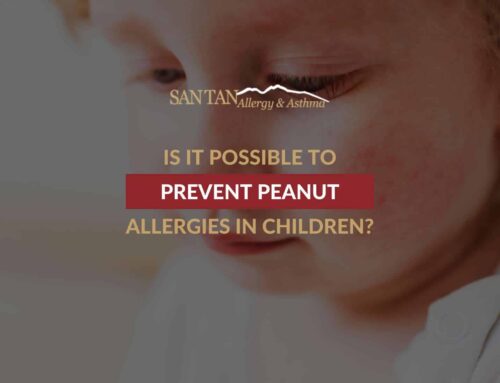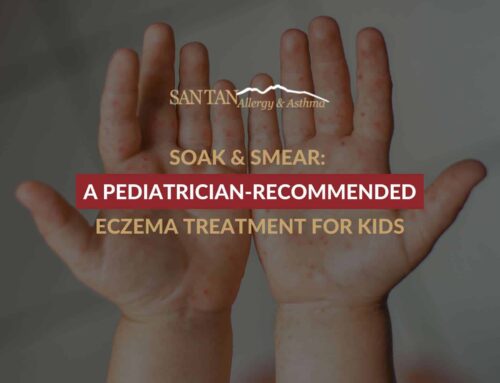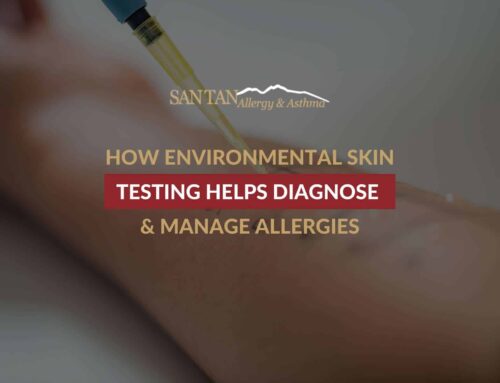Understanding The Process & Benefits Of Food Challenge Tests For Allergy Diagnosis
Dealing with food allergies can be frustrating, especially when you’re unsure which foods are causing allergic reactions. Whether you’ve experienced unexplained symptoms or are worried about common allergens like peanuts, a food challenge test can offer the clarity you need. In this article, we’ll explain how food challenge tests work, why they’re crucial for diagnosing food allergies, and how they can help you confidently manage your diet.
What Is a Food Challenge Test & How Does It Work??
A food challenge test is a carefully supervised procedure designed to confirm or rule out food allergies. It is considered the “gold standard” for diagnosing allergies, particularly when other diagnostic methods, such as skin prick or blood tests, yield inconclusive results. It is particularly useful when confirming suspected allergies to foods like peanuts, eggs, or milk, which can cause serious reactions and require precise diagnosis.
During the test, the patient consumes small, controlled amounts of the suspected allergen, starting with a very low dose. The amount is gradually increased while the patient is closely monitored for any signs of an allergic reaction. If no reaction occurs after each dose, the food may be considered safe for consumption. However, if an allergic reaction is triggered, it confirms the allergy, and the medical team will administer appropriate treatment to manage the symptoms. This test is done in a controlled environment to ensure safety, with emergency measures in place in case of a severe reaction.
Why Are Food Challenge Tests Necessary?
Food allergies can range from mild discomfort to severe reactions like anaphylaxis. While skin tests can show whether you’re sensitive to a food, they don’t always predict if consuming the food will trigger an allergy. A food challenge test helps provide a definitive answer, so you don’t have to live with uncertainty.
For example, you might test positive for a peanut allergy on a skin test, but that doesn’t mean eating peanuts will definitely cause an allergic reaction. A food challenge test can confirm whether or not peanuts should be completely avoided in your diet.
How Food Challenge Tests Are Performed
Food challenge tests are conducted in a medical setting under strict safety protocols. Here’s a step-by-step overview:
- Preparation: Patients are advised to avoid the suspected allergen and certain medications, such as antihistamines, for a specific period before the test. This ensures the results are accurate.
- Initial Dose: The allergist administers a small amount of the suspected allergen, often mixed into another food or encapsulated to prevent recognition.
- Observation: After consuming each dose, the patient is closely monitored for allergic reactions. If no symptoms appear, the dosage is gradually increased at 15-minute intervals.
- Completion: If the patient tolerates the final dose without reacting, the food is considered safe. If a reaction occurs, appropriate treatment is provided immediately.
The entire process typically lasts three to four hours, with extended observation if allergies are triggered during the test.
Benefits Of Food Challenge Tests For Accurate Allergy Diagnosis
Food challenge tests offer numerous benefits:
- Accurate Diagnosis: By providing definitive answers, they eliminate the uncertainty often associated with an allergy test.
- Expanded Food Choices: Patients who pass the test can safely reintroduce certain foods into their diets, enhancing their quality of life.
- Personalized Care: The results guide allergists in tailoring treatment plans to the patient’s specific needs.
For individuals with a peanut allergy, these tests can clarify whether complete avoidance is necessary or if some level of tolerance exists.
Risks & Safety Measures & How Safety Protocols Protect You
Food challenge tests are generally safe when conducted under the supervision of trained healthcare professionals in a controlled medical environment. However, they carry inherent risks due to the deliberate exposure to potential allergens. These allergy tests are carefully designed to provide accurate and actionable insights while prioritizing patient safety.
The most concerning risk is the possibility of triggering an allergic reaction, ranging from mild to severe. Minor symptoms, such as hives, itching, or mild swelling, are relatively common and can usually be treated with antihistamines or other medications. These reactions, while uncomfortable, are manageable and often resolve quickly.
Severe reactions, including anaphylaxis, are rare but can occur. Anaphylaxis is a life-threatening condition that may involve difficulty breathing, a rapid drop in blood pressure, and swelling of the throat. To mitigate this risk, food challenge tests are conducted in medical facilities equipped to handle emergencies. Providers have epinephrine and other life-saving treatments readily available, ensuring immediate intervention if needed.
The controlled setting also allows for constant monitoring of the patient’s vital signs and symptoms. Trained professionals can quickly differentiate between mild discomfort and more serious reactions, providing reassurance to patients and their families.
By adhering to strict safety protocols, the benefits of food challenge tests significantly outweigh the risks, offering patients valuable insights into their allergies and empowering them to manage their condition confidently.
Preparing For a Food Challenge Test
Proper preparation is essential for a safe and accurate food challenge test. Following your allergist’s instructions carefully ensures that the test results are reliable and minimizes the likelihood of complications. Consulting with an allergy expert can provide additional guidance tailored to your specific medical history and concerns.
Patients are typically required to avoid the suspected allergen and other potential triggers for a specified period (often one to two weeks) before the test. This ensures that any reactions observed during the test are due solely to the administered allergen and not prior exposure.
In addition to dietary restrictions, patients may need to discontinue the use of certain medications. Antihistamines, for instance, can mask symptoms of an allergic reaction, potentially leading to false-negative results. Your allergist will provide a detailed timeline for pausing medications and resuming them after the test.
Patients are also advised to fast for several hours before the procedure. This precaution reduces the risk of vomiting, which can sometimes accompany allergic reactions.
Finally, it’s crucial for patients to share their complete medical history with their allergist before the test. This includes any recent illnesses, medications, or previous severe reactions, as these factors can influence the test’s safety and outcomes.
What To Expect After The Test
One of the advantages of food challenge tests is the immediate availability of results. If no allergic reaction occurs during the test, the allergist will confirm that the food is safe to consume, and patients can gradually reintroduce it into their diets. This can significantly improve their quality of life by expanding their dietary options.
If a reaction occurs, the allergist will promptly treat the symptoms and provide guidance on managing the confirmed allergy. This may include prescribing emergency medications, such as epinephrine auto-injectors, and offering advice on how to avoid accidental exposure to the allergen.
Follow-up consultations are essential for understanding the implications of the test results. During these appointments, the allergist may provide additional resources, such as dietary recommendations. Patients will also receive a personalized allergy action plan, outlining steps to take in case of future reactions.
By offering a comprehensive evaluation and clear guidance, food challenge tests empower patients to manage their allergies effectively and lead healthier, more informed lives.
Get a Clear Diagnosis For Your Allergies With a Food Challenge Test At San Tan Allergy & Asthma
Food challenge tests are a critical tool for accurately diagnosing food allergies, especially when other tests aren’t conclusive. Whether you suspect a peanut allergy or need clarification on food sensitivities, a food challenge test can help you make informed decisions about your diet and lifestyle.
If you’re struggling with food allergies or need to better understand your symptoms, contact the trusted team at San Tan Allergy & Asthma today. Our experienced allergy specialists in Phoenix are dedicated to helping you get a clear diagnosis and provide personalized care so you can live a healthier, allergy-free life.
San Tan Allergy & Asthma
4915 E Baseline Rd #112
Gilbert, AZ 85234
Phone: 480-626-6600
Email: officemanager@santanallergy.com
Website: https://santanallergy.com/









